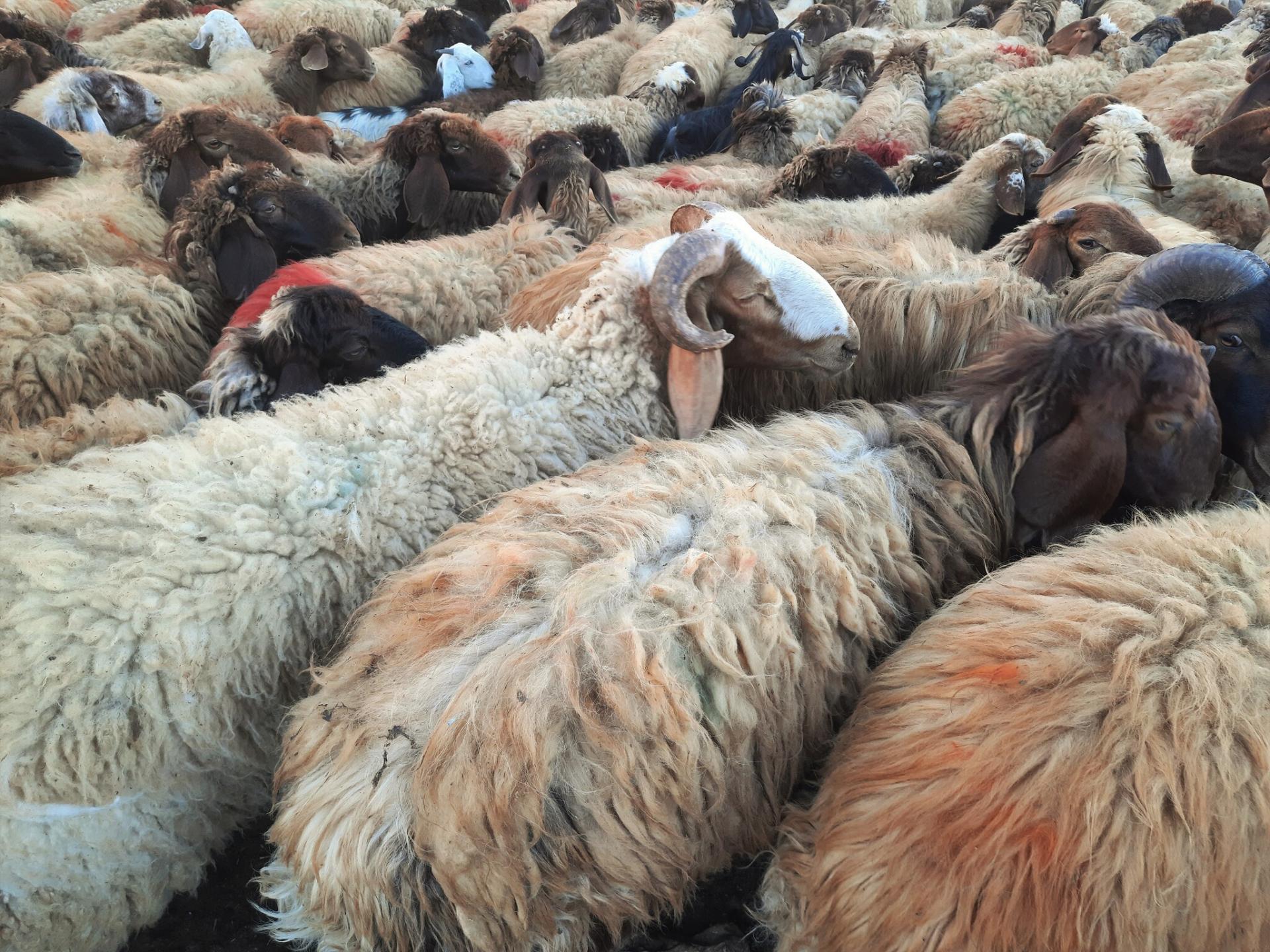Samara, Jordan Valley: "All this once belonged to the Palestinians"
I came to accompany Palestinian shepherds with another person from the Palestinian Jordan Valley Coalition. I spoke with F. who asked us to be there at 7:30 a.m., and so we were. Going out to graze was late because a vet had arrived to inoculate the flock. There were women and children there whom I hadn’t met before. They did not introduce themselves, only greeted us. The vet said ‘good morning’ as soon as he saw us. He said he takes care of flocks as well as domestic animals in the entire area, with a clinic at En Al Beida. The sheep were gathered in one of the corrals. F. and his son M. identified the ones needing inoculation, caught them with their bent shepherd’s came, and the vet injected the inoculation. One of the people present F. and M. or another younger brother) sprayed the animal green. They did not inoculate pregnant sheep because it might make them abort, so said the vet. This activity raised a lot of dust. Afterwards, we sat down to breakfast and then proceeded out to graze around 8:30 a.m.
As in previous times, we crossed the wadi northwards and then climbed to the east, grazing close to the road without crossing it up to the east nor going down much to the west. This time, F.’s brothers did not graze near us. F. said that October used to be rainy. When we looked at the ant nests, he said they are getting ready for winter and recalled the ‘Ant Sura’ of the Koran. He said the flock eats the harnessing bush only after the rain, if there is no green grass yet, for the animals do not like to eat wet straw.
As we looked up towards the area to the east, F. said that once all the land from Toubas to the Jordan River belonged to Toubas residents. He said that the place where they graze belongs to them and they have documents to prove it. Even east of there beyond the electric fence that Uri, the settler-colonist from the Umm Zuka outpost erected, is their land. But the Israeli army and police chase them away when they graze there. I asked him about bringing almond peels for the flock as feed. He said he too has begun to do that, because there is not enough pasture after lands were taken, and no rain.
“30 years ago we lived here, and then we were told to go away because it’s a nature reserve. Now the settler-colonist came and lives here.” Our talk developed because we came to a place with a lot of grass but also old rubbish of the Israeli army. Nearby, on the other side of the road, is a small garbage dump. F. said that the rubbish there is Uri’s, of the outpost. Before F.’s family was forced to leave and move to its present location, their home was right there near the outpost. The Nature and Parks Authority should have forbidden Uri to erect the fence, but it’s only us who are being told we mustn’t graze there.” F. also mentioned that the cattle that belongs to the outpost is much more harmful to the ecology than the sheep and goats.
I told F. that the Ministry in charge has solved the sewage problem at Khalat Makhoul and asked if he wanted me to speak to them about the garbage. He said: “Only if you do it in your name, for if Uri thinks it’s me, he will give me trouble.” I realized it was better not to speak to them. I told him I would only do it if he asked. I asked if there were no dangerous materials there, including asbestos which the animals might eat. He said there are, but if there is food they will eat it, and not the garbage.
It was very warm for November, and especially dry. Around 10:30 the other accompanier and I realized that F. and the flock were not near us. We began to walk back. They must have proceeded very fast, because upon reaching the encampment the flock was already drinking.

